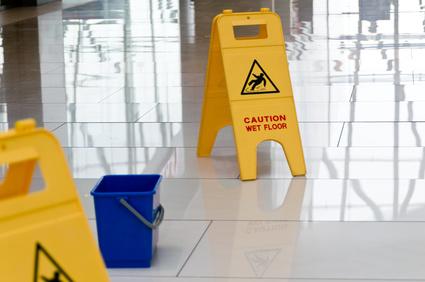- Free Consultation: (843) 391-9902 Tap Here to Call Us
What Are ‘Open and Obvious’ Hazards in South Carolina Slip and Fall Cases?

Owners and managers of property are usually tasked with taking care of that property so that no visitor is injured by a hazard. If an injury does happen, however, the owner or manager can turn to the doctrine of open and obvious hazards under the principle of comparative negligence. Read on to learn more about how a Darlington County slip and fall lawyer can help you get the compensation you deserve regardless of tricky affirmative defenses like these.
When Open and Obvious Are Hard to Define
South Carolina lacks a clear, statute-based definition of what “open and obvious” hazards are.
However, cases such as Creech v. South Carolina Wildlife and Marine Resources Department (1997) as well as Padgett v. Colleton County (2009) do analyze the concept of open and obvious hazards. Creech involved a public dock without a safety railing and Padgett involved a hole in courthouse grounds, just off the sidewalk. In both Creech and Padgett, the Court concluded that these qualified as “open and obvious” hazards, for which the property owners were not responsible.
The Open and Obvious Defense: Reasonable Expectation of Harm
Just as defendants can argue that the plaintiff should have perceived and avoided open and obvious hazards, plaintiffs can argue that the defendant had reason to anticipate the harm to the plaintiff.
For example, in Creech, the county public works office had been repeatedly warned about the lack of safety rails: a letter to the construction superintendent as well as a letter from the public works director both reminded the Wildlife and Environmental Committee about the importance of safety rails in piers and boat ramps. Similarly, in Padgett, the court noted that the path the plaintiff walked had been well-worn, such that the county should have been aware people were using it, particularly, as in the plaintiff’s case, when the sidewalk wasn’t available.
Furthermore, the open and obvious defense may not function if the property owner or manager has reason to believe someone would be distracted and therefore not notice the hazard, regardless of how open and obvious it may be. Some examples of court-accepted distractions include:
- Shelves with products distracting shoppers from a spill on the floor
- Strong rain that causes a pedestrian to be distracted from how slippery a stoop is
- A portable bathroom near a hole in the ground, in a construction zone with falling debris
Call James Law Office Today
The open and obvious doctrine can be a tricky defense to fight, but experienced slip and fall lawyers know all about how to protect your rights. Contact our law office soon and we’ll go over what options are available for your case.



